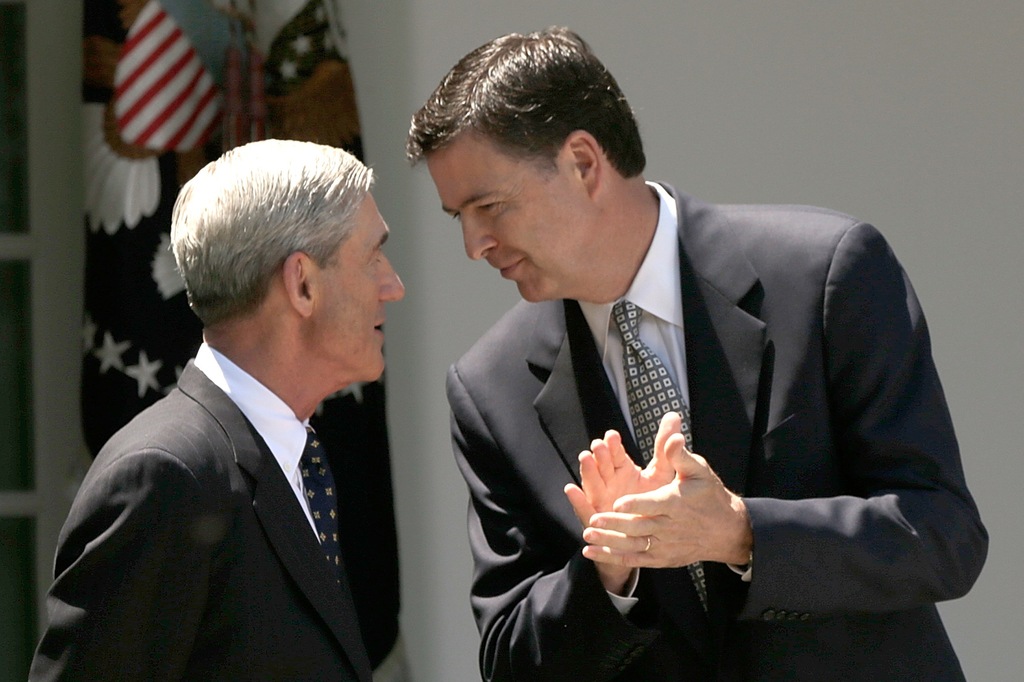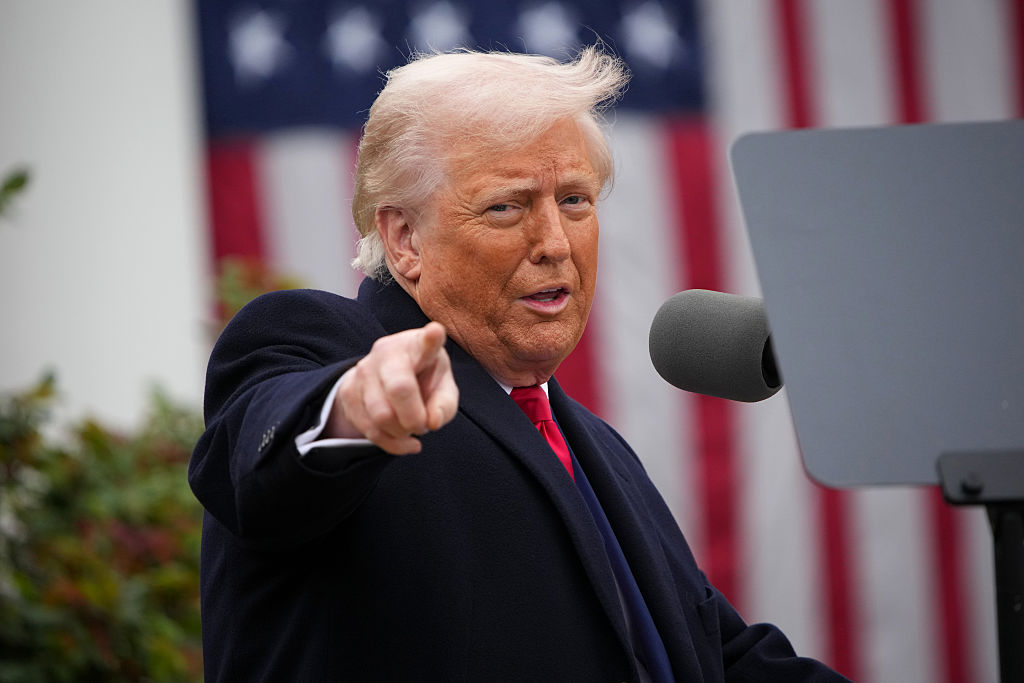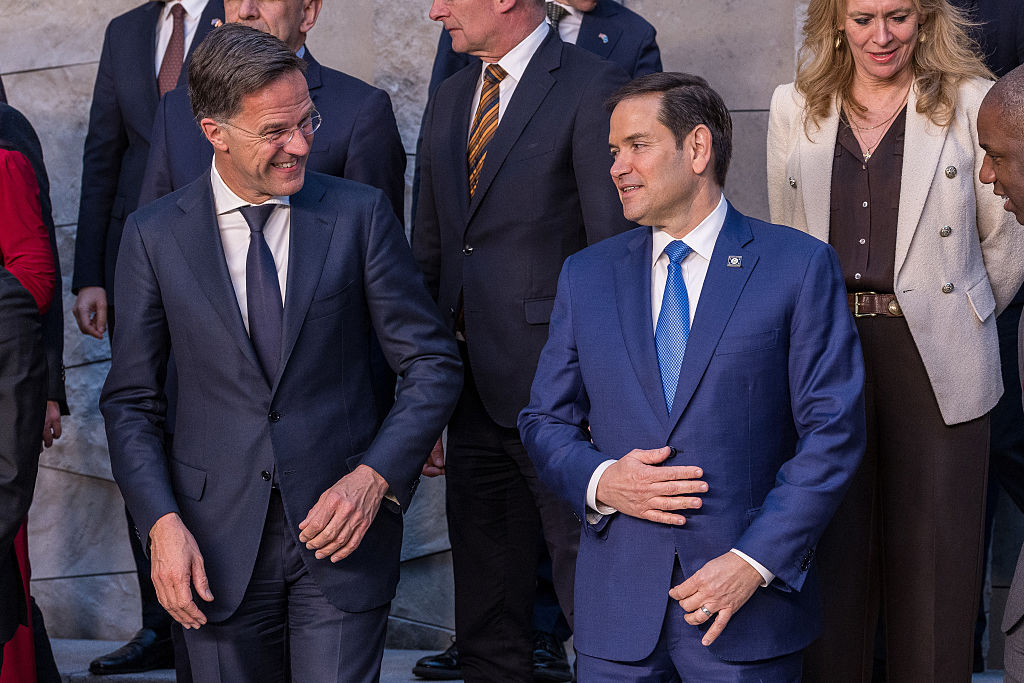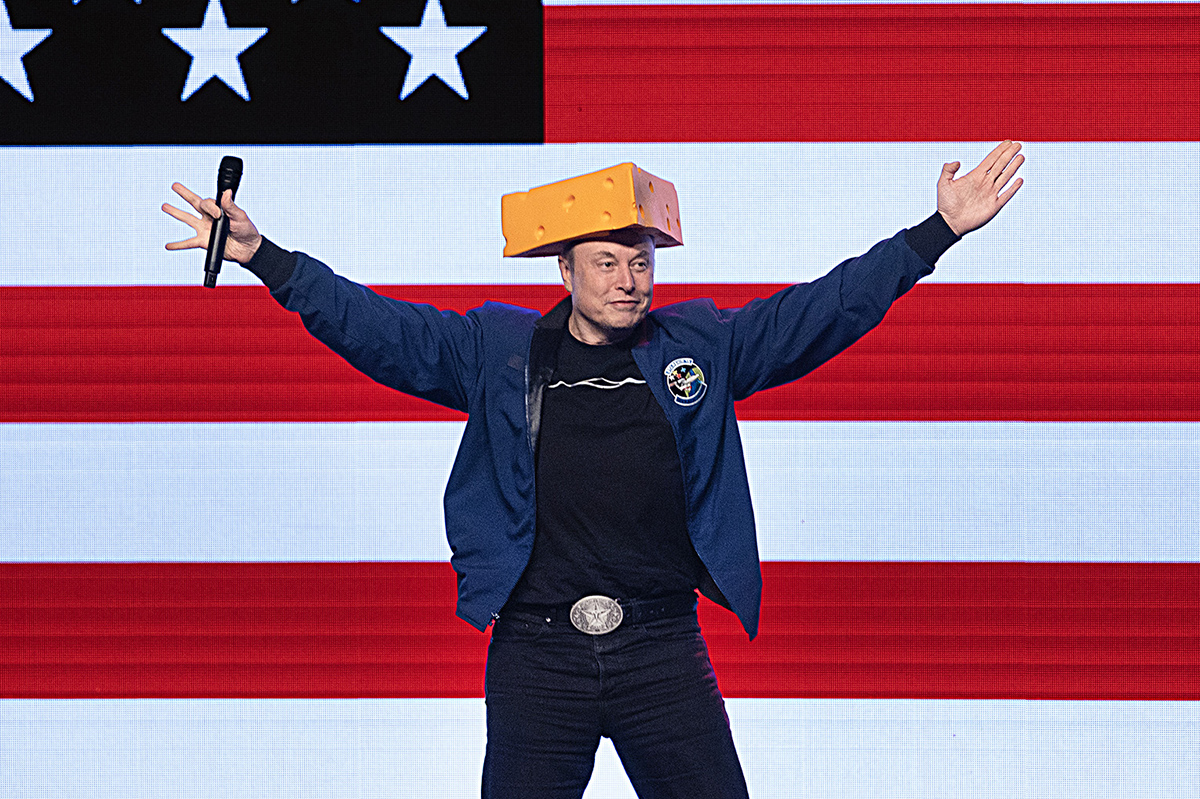I am pretty sure it is not intended to be an exercise in comedy, but there are a few amusing passages in my friend Ron Radosh’s latest anti-Trump effusion. Writing about the scandal that President Trump and others have denominated “Spygate,” Ron writes that:
. . . it is becoming apparent that the FBI source (since exposed as academic Stefan Halper) was not put into Trump’s campaign for political purposes but was part of a legitimate counterintelligence operation investigating Russia’s election interference in the U.S. elections and involved three of his campaign aides, Carter Page, George Papadopoulos, and Sam Clovis, whom Halper interviewed. Trump evidently believes that Halper’s interviews were an attempt to entrap his advisers to plant evidence about Russian collusion. (my emphasis.)
Ha, ha, ha.
Where to begin? I think that Ron is correct that the President “believes that Halper’s interviews were an attempt to entrap his advisers to plant evidence about Russian collusion.” He believes it because the evidence suggests it is true. On the question of whether the investigation was “legitimate,” well, what do you think? We know that the FISA warrants against Carter Page were granted on the strength (such as it was) of still-unverified opposition research (Christopher Steele’s infamous “dossier”) commissioned and paid for by the Clinton campaign and the Democratic National Committee. The paymaster for Steele’s oppo research against Trump was concealed from the court when the warrants to open the counterintelligence probe and surveil an American citizen were sought. By law, such intrusive surveillance is to be brought to bear against an American citizen only if there is probable cause to believe he is guilty of a serious crime. What was the crime Carter Page was suspected of? You do not know the answer to that, because no crime was ever adduced. To this day, Carter Page, who in the past aided the FBI in cases against Russian spies, has not been charged with a crime.
The primary target of Ron’s column (apart, that is, from Donald Trump, who is, ex officio, always the target-in-chief of such salvos) is Jerome Corsi, whose last public service was to call attention to John Kerry’s fraudulent claims about his service in Vietnam. But there is a lot of collateral shrapnel deployed, and its targets are primarily me, Victor Davis Hanson, and Devin Nunes, who is the chairman of the House Intelligence Committee investigating the Obama administration’s weaponisation of the intelligence services and police power of the United States against, first, Donald Trump’s campaign and, then, his administration. (Victor has responded at NRO here.)
Ron doesn’t like Jerome Corsi or Donald Trump but finds it even “more troubling” that “many intellectual Trump supporters are echoing the president and are making the same arguments.” Exhibit #1 is my column for the Speccie USA of 25 May. “Roger Kimball,” he notes, “argues like Trump that it was [John] Brennan [former Gus Hall enthusiast and Obama’s director of the CIA] who put together a ‘working group… to stymie Trump’s campaign.’ ” Exactly! Based on a bogus tip from Estonia that Russia and Trump were in cahoots, Brennan convened a group of intelligence operatives, including Director of National Intelligence James Clapper and Peter Strzok, the FBI’s head of counterintelligence, at CIA headquarters in Langley to deal with the supposed emergency. Right again! That’s exactly what appears to have happened.
And Ron is right, too, that I wrote that this cabal, having failed to destroy Trump’s campaign is now in the midst of “a desperate attempt to destroy his presidency.” Yep. Bingo. This really is, as I wrote, “the biggest political scandal in the history of the United States: the effort by highly placed—exactly how highly placed we still do not know—members of one administration to mobilize the intelligence services and police power of the state to spy upon and destroy first the candidacy and then, when that didn’t work, the administration of a political rival.”
Ron thinks this is all rot, but why?
One of the things Ron doesn’t like about Jerome Corsi is that he is a “conspiracy theorist.” But one can only be a fully paid-up bona-fide conspiracy theorist when the conspiracy in question remains merely notional, i.e., “theoretical,” which is to say specious.
If, on the other hand, your pet conspiracy turns out to be real, as sometimes does happen, then one is no longer a “conspiracy theorist.” You graduate to being an “investigative reporter” who deserves the public’s thanks for bringing to light dark doings (the conspiracy). Just ask Bob Woodward and Carl Bernstein, who were championed up and down the land for exposing the conspiracy to cover-up the Watergate break-in and effort to spy (or plant an informant on) the Democratic National Committee. Alas, James Clapper did not work for Richard Nixon, so he could not respond that the effort to spy on the Democrats was “for their own good,” as he just said about the effort to spy on Donald Trump’s campaign.
But don’t take my word for it. Just yesterday, John D. O’Connor, the lawyer who revealed the identity of Watergate’s “Deep Throat,” wrote a piece for the Daily Caller about the politicisation of the FBI under James Comey, its disgraced director who was fired by President Trump last May. “Recent revelations,” O’Connor writes, “show, chillingly, that he [Comey] involved the FBI in what appears to have been a plot to entrap, and even frame, a political opponent and his campaign regarding Russian collusion. This radical politicisation of the Bureau makes any Nixonian scheme seem like child’s play. Nixon shamefully tricked the FBI into doing a routine background check on his enemy, journalist Daniel Schorr. Comey outdid Nixon by a wide margin, using his FBI to construct a false case of possible treason against a political enemy.”
Indeed. All of these points have been widely corroborated by numerous clear-eyed commentators, including Lee Smith, Andrew McCarthy, Mollie Hemingway, Sara Carter, Victor Davis Hanson, Conrad Black, and Chuck Ross, and Kimberly Strassel, among others. O’Connor offers a tart summary of the partisan politicisation of the FBI under James Comey:
Comey knew that the Steele dossier was opposition research trash, but premised an investigation on it. After originally failing, without the false dossier, to obtain a FISA warrant to surveil the Trump campaign, he used the Dossier to obtain FBI warrants to eavesdrop on an opponent he had admittedly loathed. Rather than separating his bureau from Steele, Comey agreed to hire him, pulling out of the deal only because Steele became vulnerable as a proven leaker and liar. Comey’s entire leadership team, including number-two man Andrew McCabe, counterintelligence chief Strzok and legal counsel Lisa Page, all seemed to have been involved in framing Trump, working with partisan CIA Director John Brennan. When Strzok was being candid with his lover Page, he later resisted joining the Special Counsel’s Russian probe because he knew “there was no there there.” Did Comey inform Rosenstein of the vacuity of the charges on which the appointment of Mueller was based? We doubt it.
It gets worse.
Baseless claims did not stop Comey. He tried to use the salacious allegations as leverage against Trump in his January 6, 2017 meeting with the president-elect, concealing their partisan provenance and lack of credibility. Part of the meeting’s purpose was to give DNI James Clapper a news “hook” to leak the dossier’s claims to CNN, which dutifully trashed Trump, and provided BuzzFeed an excuse to smear Trump by publishing the whole megillah. Comey then began making book on his new boss, writing four memos to use as ammunition against him in the future. But all of this, it now turns out, is not the entirety of the iceberg, as it seemed just days ago.
Every assertion in these paragraphs is easily verifiable by anyone with a computer and internet access. As is the probable truth of the assertions here:
It is now coming to light that the FBI was setting up Trump ever since he became a likely presidential nominee. In late 2015, Brennan embraced a false tip from Estonia that Putin was seeking to support Trump financially, and brought Comey into an ‘intra-agency” group targeting Trump. On March 21, 2016, candidate Trump met with The Washington Post editorial board, which asked about his foreign policy credentials. To bolster his team’s strength, perhaps inflationarily, he named lowly, clueless hangers-on George Papadopoulos and Carter Page as part of his team with Russian experience — literally true, but nonetheless a strenuous stretch. It was then that the entrapping forces of Comey, Clapper, and Brennan, partisans all, went to work.
I’d say this was on the short list of finalists for the “biggest political scandal in the history of the United States.” Anyway, I cannot think of a bigger one. I stand by every claim in my earlier column.




















